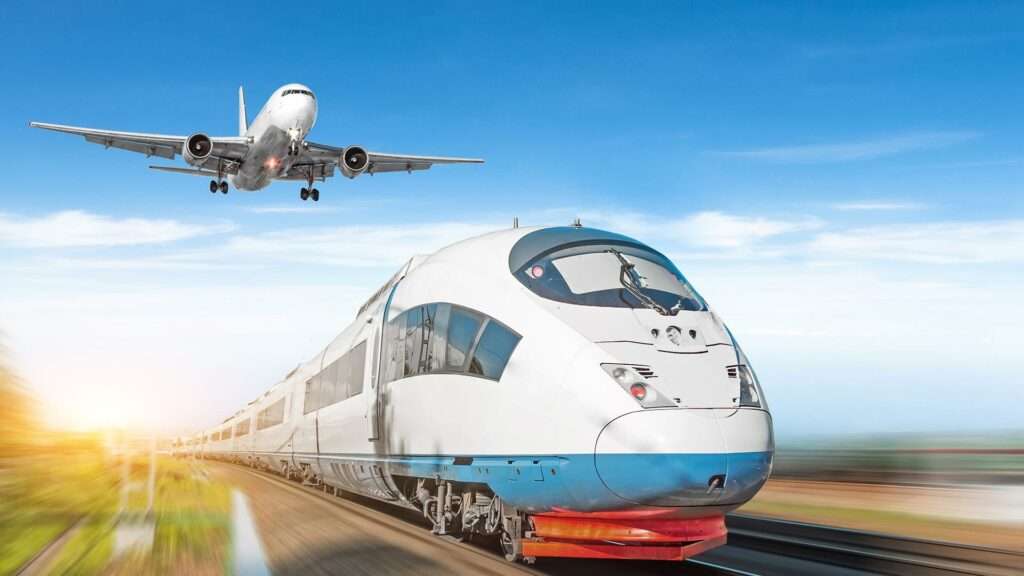Keeping costs down in the midst of a cost of living crisis has never been more vital for commuters. So we ask: Is it cheaper to travel by air or train to London?
Using two airlines, being British Airways & easyJet, as well as pricing advertised from the Trainline on two popular routes (Glasgow to London & Manchester to London), let’s see if this is an opportunity that the airline industry could seize on.
Without further ado, let’s get into it…
Setting The Baseline: Traveling to London by Train…

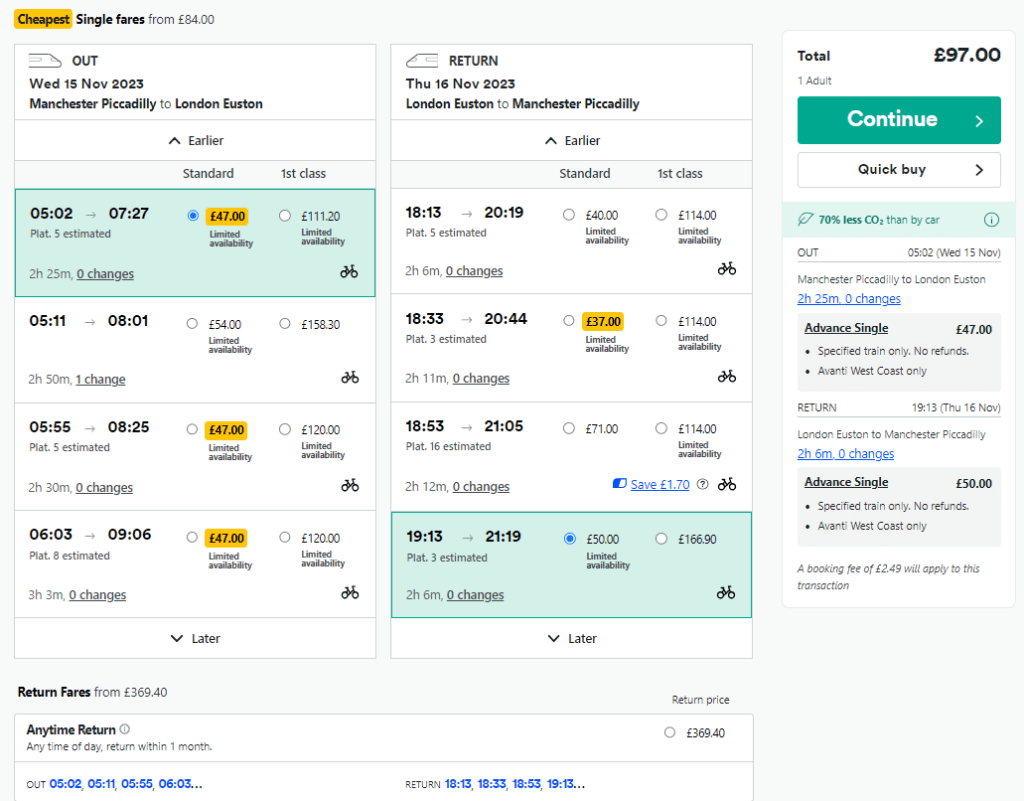
If we are setting the baseline, we have selected typical return fares from Glasgow Central and Manchester Piccadilly to London Euston based on the typical 9-5 as best as we possibly can.
It is key to note that a lot of this can be left open to interpretation, but such pricing is accurate at the time of writing (24/9/23).
The Cheapest return fares for November 15-16 (If you are assuming a two-day, one night business trip) are as follows:
- Glasgow Central-London Euston: £129.10. Anytime Return = £393.
- Manchester Piccadilly-London Euston: £97.00. Anytime Return = £369.40.
So, with that in mind, let’s use two airlines (British Airways & easyJet) as our comparison factors…
The Airline Equation: A Way To Counteract Train Strikes in the UK?
British Airways…
Glasgow to London:
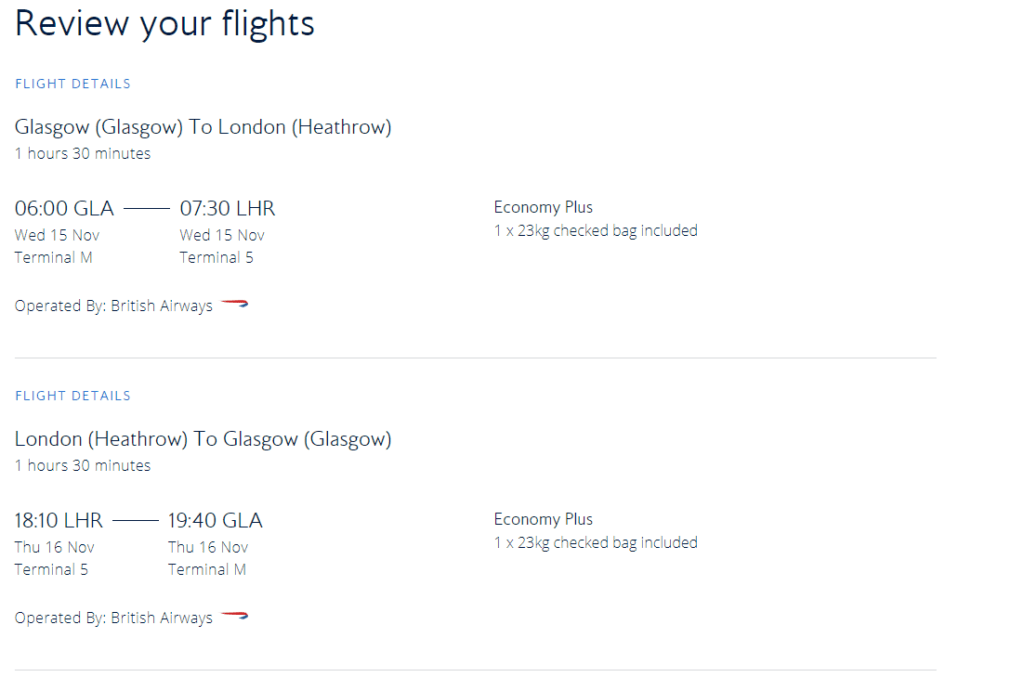
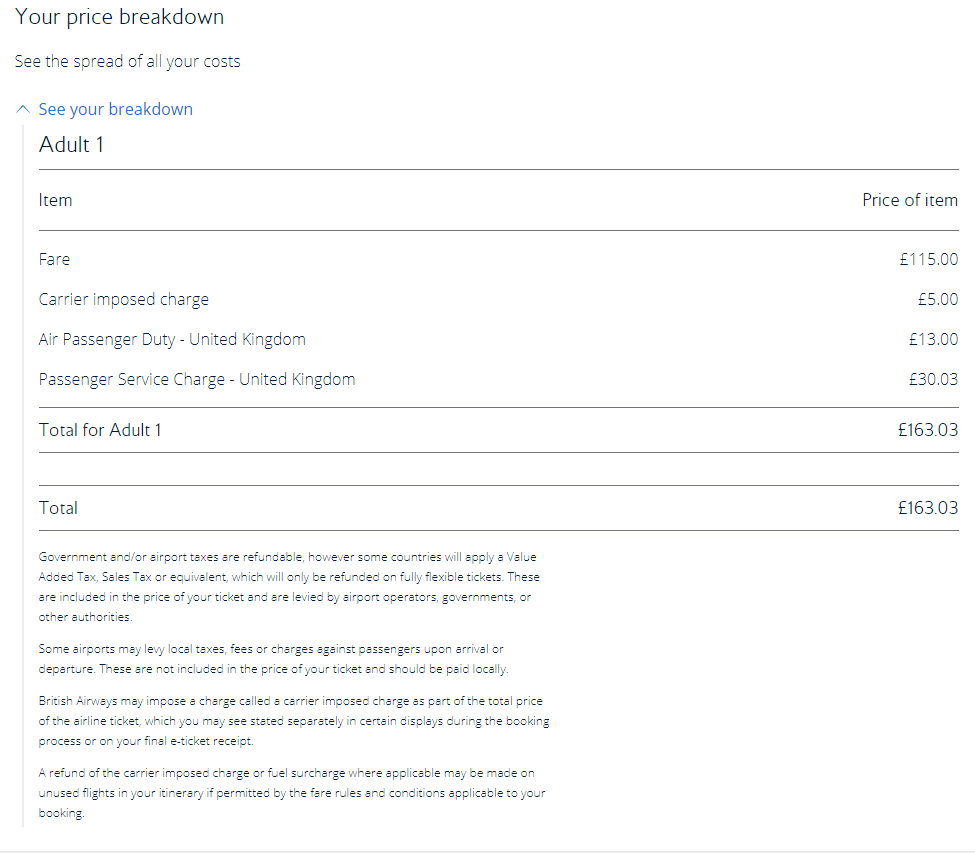
This is the Glasgow to London Heathrow rotation, and again the flight times have been based on the general 9-5 set-up.
British Airways charges £163.03 for a return flight on this particular sector. This is of course utilising their Economy Plus, which enables suitcase use: Again, another aspect of overnight stays as well.
This is around £40-45 more expensive than taking the train due to the Air Passenger Duty Tax and Passenger Services Charge taking effect.
Manchester to London:
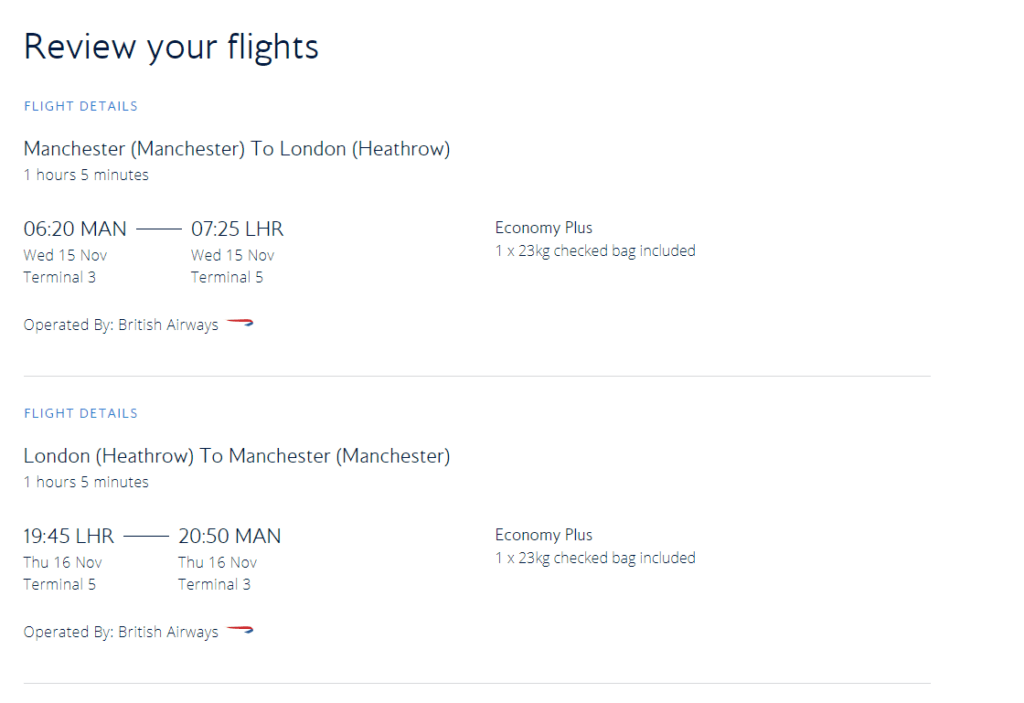
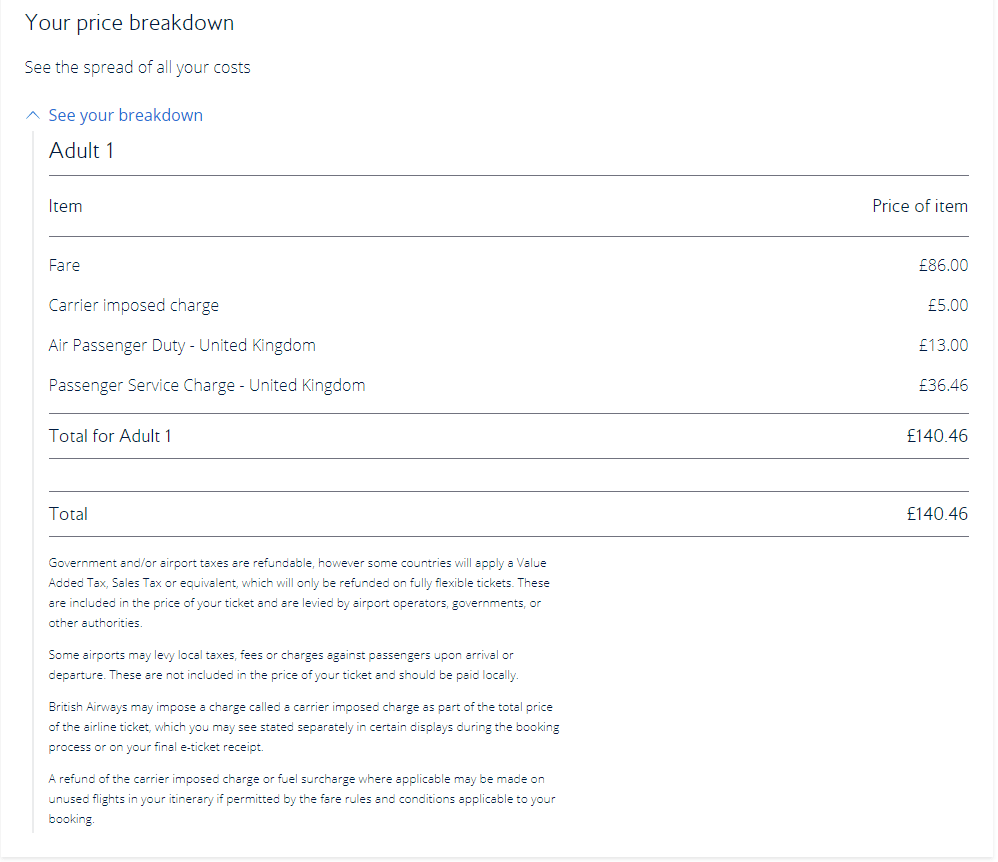
The Manchester-London flight with British Airways comes in at £140.46 return for those particular dates, which again are the same used throughout all examples.
This figure is considerably more expensive than by utilising the train, although it is key to note the Air Passenger Duty & Passenger Service Charges that are implemented through both of those flights too.
easyJet…
Glasgow to London:
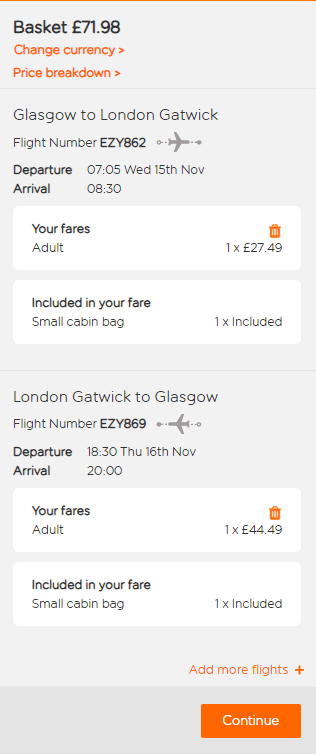
Glasgow to London with easyJet comes in at £71.98 return. Now this only includes a small cabin bag, so if you can pack light, then this is cheaper than going by train, and takes a shorter time to travel as well. With a suitcase, this would come in at around the £120-140 mark as a maximum level.
The only thing is that you would have to ironically get on a train to London Victoria to get anywhere closer to central London.
Manchester to London:
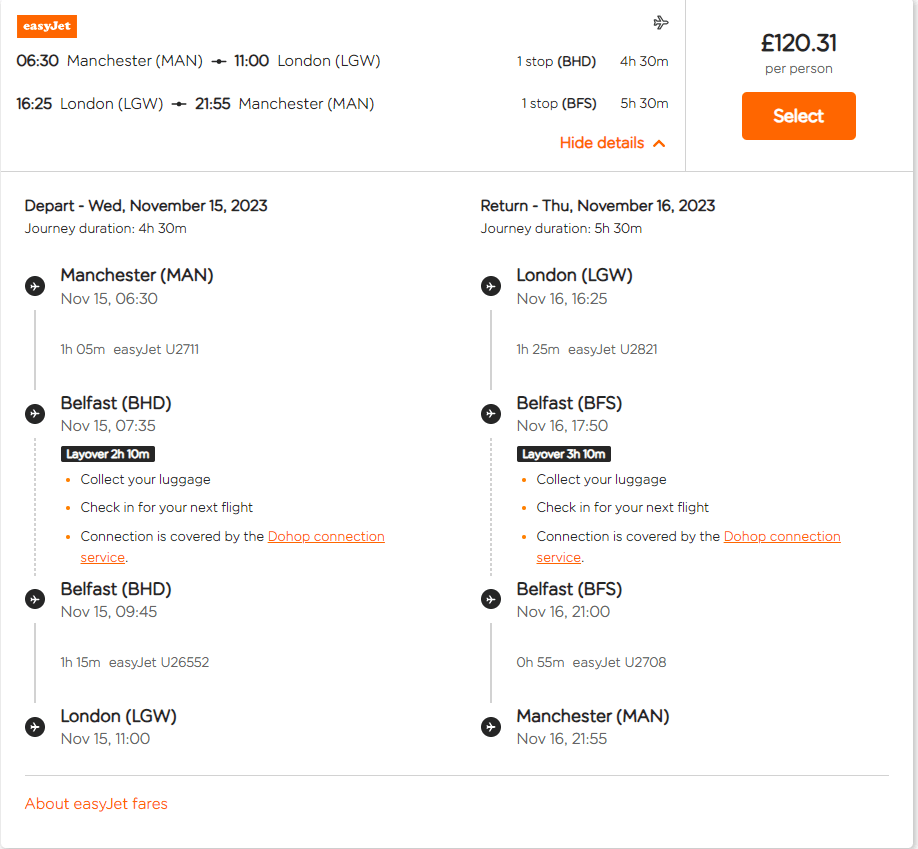
For Manchester to London with easyJet, this wouldn’t be as convenient, and would actually cost you more.
Unless you are an avid aviation fan and want to pay for two flights (Stop over in Belfast on the way), then this element is actually unsustainable, especially if you have to make some first thing meetings.
Overall…
At this stage, it remains clear that it is cheaper to go by train to London from either Manchester or Glasgow (easyJet being the exception on the Glasgow-London route), so what does this all mean?
[monsterinsights_popular_posts_inline]
Could Scrapping Air Passenger Duty Enable A Switch From Rail to Air?

In the context of the easyJet flight from Glasgow to London, it would make the airfare even cheaper than what it already is, and could encourage more flights to be added if that was the case.
If you are looking at it from the perspective of British Airways, scrapping Air Passenger Duty Tax (APD) would make it more affordable, but wouldn’t meet the level of train pricing unless passenger services charges were scrapped as well.
Both of those charges being scrapped would provide beneficial elements to both the airlines, but also to the consumer as well moving forward.
With UK Prime Minister Rishi Sunak recently announcing there will be no additional taxes on flying in the country, this will be welcome news, but airlines, and no doubt customers, want more.
The UK Government cut APD earlier this year, which resulted in Ryanair announcing nine new routes out of the country.
However, Jade Kirwan, the Head of Communications for the Irish low-cost carrier had this to say on the matter:
“While the halving of APD on domestic flights from Apr ‘23 has allowed Ryanair to add more domestic routes to our UK schedule for Summer ’23 if we are to continue to grow and drive traffic/tourism recovery for the UK, the UK Govt should immediately scrap APD for all travel and provide incentives for airlines like Ryanair to stimulate growth and recovery for the entire UK market.”
Overall: Can The Airline Industry Put Pressure on Train Companies?

With executives of train companies being lambasted for taking so much money off the typical commuter and not providing a reliable enough service, can the airline industry put pressure on train companies in that respect?
That is overly dependent on whether the Government is willing to scrap APD either in its entirety or by another hefty percentage.
If a further scrapping of the tax occurs, then such pressure can be applied to train companies, so then they can bring the prices down.
However, that may not be a popular opinion in the context of the ongoing rail strikes, where pay disputes and working conditions still continue to unfold.
You also have the environmental factor as well. Whilst Prime Minister Sunak said there wouldn’t be any additional taxation on flying, other countries across Europe are taxing domestic flights further to encourage an increase in rail travel.
But to counter that, with more fuel-efficient aircraft coming into the foray, as well as development into hydrogen and electrification progressing at a strong rate, why can’t the airline industry have a chance at taking on the rail industry and provide more affordable travel for the consumer?
All of this will no doubt offer some changes in the years ahead, especially as sustainability continues to be a big issue within the UK. It will be interesting to see how all of this will pan out.

Click the banner to subscribe to our weekly newsleter.





